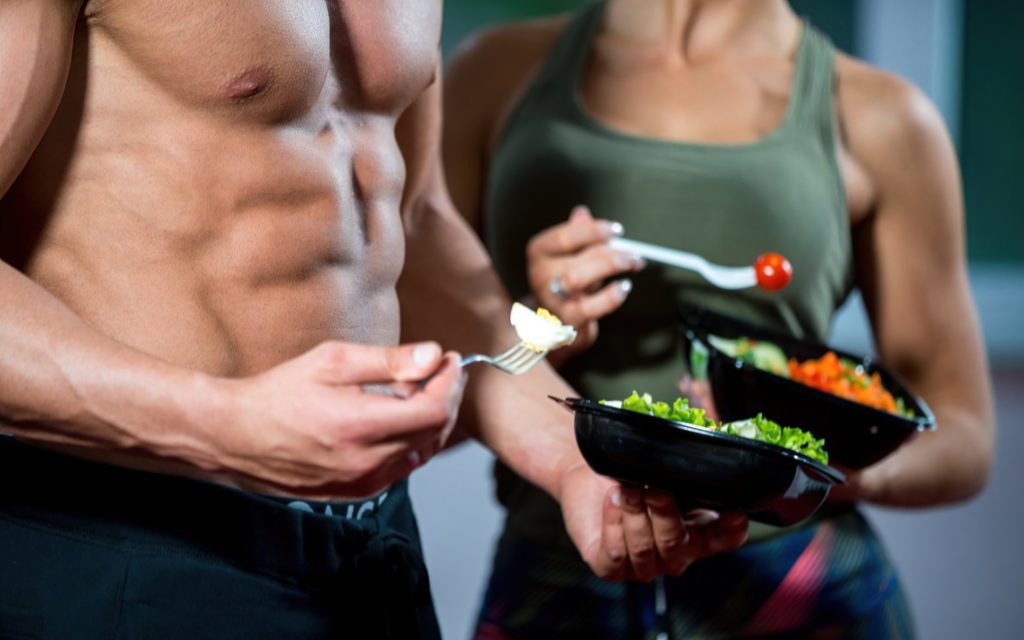Fuel Your Performance with the Right Nutrients
As an athlete, your performance depends largely on your diet. The right balance of nutrients is essential to fuel your body and help you recover faster. This guide will provide you with valuable tips and strategies for healthy eating, specifically tailored for athletes. Let’s dive in!
The Importance of Balanced Nutrition
1.1: Meeting Energy Demands
Athletes require more calories than sedentary individuals to meet the energy demands of their sport. Consuming enough calories helps maintain body weight, support muscle growth, and prevent fatigue during training and competitions.
1.2: Macronutrient Balance
Carbohydrates, proteins, and fats are the three primary macronutrients that provide energy and support various bodily functions. Athletes should aim for a balanced diet, with carbohydrates making up 55-65% of daily caloric intake, protein 10-15%, and fat 20-30%.
Fueling Your Workouts
2.1: Pre-Workout Meals
Eating a meal 3-4 hours before your workout can provide the necessary energy to perform at your best. Aim for a meal that is high in complex carbohydrates, moderate in protein, and low in fat and fiber to minimize digestive discomfort.
2.2: Hydration
Proper hydration is crucial for athletic performance. Dehydration can lead to decreased strength, endurance, and overall performance. Aim to drink water throughout the day and consume 500-600ml of water 2-3 hours before your workout.
Recovery Nutrition
3.1: Post-Workout Meals
Consuming a meal within 30 minutes to 2 hours after a workout can help replenish glycogen stores, repair muscle tissue, and support muscle growth. This meal should be rich in carbohydrates and protein, with a 3:1 ratio of carbs to protein.
3.2: Hydration and Electrolyte Replenishment
Rehydrating after a workout is crucial to replace fluids lost through sweat. In addition to water, consume electrolyte-rich drinks or foods, such as coconut water, bananas, or sports drinks, to help restore electrolyte balance.
Meal Ideas and Tips
4.1: Breakfast Options
Start your day with a nutritious breakfast that includes complex carbohydrates, lean proteins, and healthy fats. Some options include oatmeal with fruit and nuts, Greek yogurt with granola, or a vegetable omelette with whole-grain toast.
4.2: Lunch and Dinner
For lunch and dinner, focus on a variety of colorful vegetables, lean proteins, and whole grains. Some options include grilled chicken with quinoa and steamed vegetables, salmon with brown rice and a mixed greens salad, or a veggie stir-fry with tofu and whole-grain noodles.
Snacking Strategies for Athletes
5.1: Pre-Workout Snacks
When you’re short on time and can’t have a full meal before your workout, a nutritious snack can help fuel your performance. Choose snacks that are easy to digest, high in carbohydrates, and low in fat and fiber. Some options include rice cakes with honey, a banana, or a small bowl of cereal with low-fat milk.
5.2: Post-Workout Snacks
For optimal recovery, consume a snack with a 3:1 ratio of carbs to protein within 30 minutes after your workout. Some post-workout snack options include chocolate milk, Greek yogurt with fruit, or a peanut butter and jelly sandwich on whole-grain bread.
5.3: Snacks for Energy and Endurance
To maintain energy levels and avoid hunger during long workouts or competitions, consume small, carbohydrate-rich snacks. Examples include energy bars, dried fruit, or pretzels. Remember to stay hydrated and replenish electrolytes during these events.
Supplements and Special Considerations
6.1: Protein Supplements
While most athletes can meet their protein needs through a balanced diet, some may benefit from protein supplements, such as whey or plant-based protein powders. These can be used in post-workout shakes or smoothies to support muscle recovery and growth.
6.2: Special Considerations for Vegetarian and Vegan Athletes
Vegetarian and vegan athletes can obtain sufficient protein and other essential nutrients through plant-based sources. Prioritize protein-rich foods like legumes, tofu, tempeh, seitan, and plant-based protein powders. Additionally, pay attention to micronutrients like iron, calcium, and vitamin B12 to ensure optimal health and performance.
Conclusion:
By incorporating smart snacking strategies and considering your unique dietary needs, you can further support your athletic performance and recovery. Keep in mind that every athlete’s nutritional requirements may vary depending on their sport, training intensity, and individual goals. Consult with a registered dietitian or sports nutritionist to create a personalized meal plan tailored to your specific needs.

